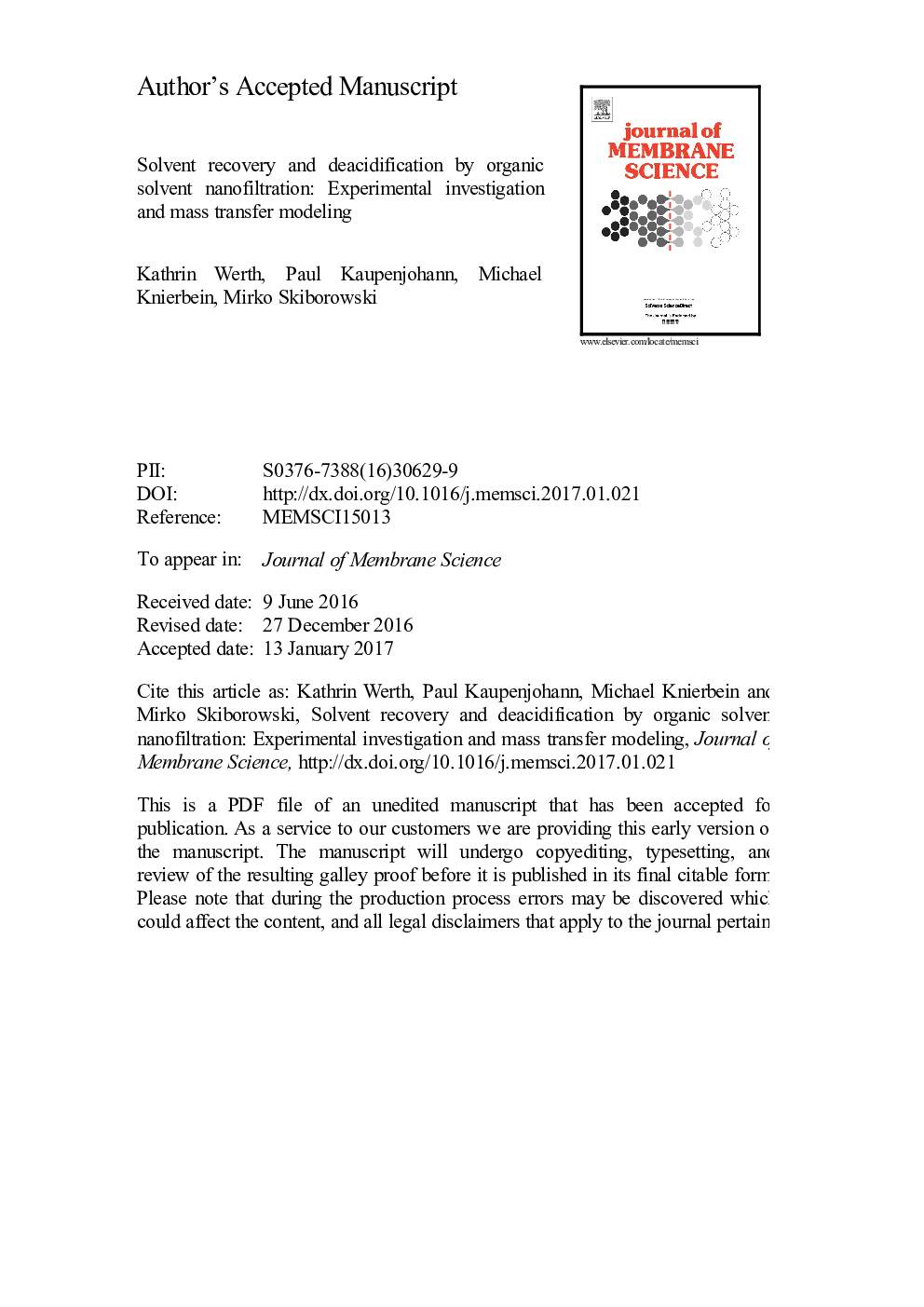| Article ID | Journal | Published Year | Pages | File Type |
|---|---|---|---|---|
| 4989180 | Journal of Membrane Science | 2017 | 43 Pages |
Abstract
Non-edible oils, waste oils and animal fats are promising feedstocks for more economic and ecological production processes. However, the composition of these low-quality oils, especially the content of free fatty acids, strongly fluctuates requiring the development of flexible process concepts. Therefore, this study investigates the potential of organic solvent nanofiltration for important applications in the oleochemical industry. It is shown that an efficient recovery of non-polar extraction solvents is possible for a wide range of low-quality oils. Commercially available PDMS-based membranes enable high solvent fluxes and rejection of triglyceride and fatty acids. In deacidification experiments, high selective separation of free fatty acids from triglycerides for long-chain as well as medium-chain oils is achieved by using polar solvents and available polyimide-based membranes. The amount of solvent, which is added to the low-quality oils, is identified as crucial parameter for separation efficiency. Membrane performance is accurately described by a (reduced) solution-diffusion model with imperfections, for which mass transfer of solvents and fatty acids is described by the convective contribution, while mass transfer of triglycerides is described by the diffusive contribution.
Related Topics
Physical Sciences and Engineering
Chemical Engineering
Filtration and Separation
Authors
Kathrin Werth, Paul Kaupenjohann, Michael Knierbein, Mirko Skiborowski,
